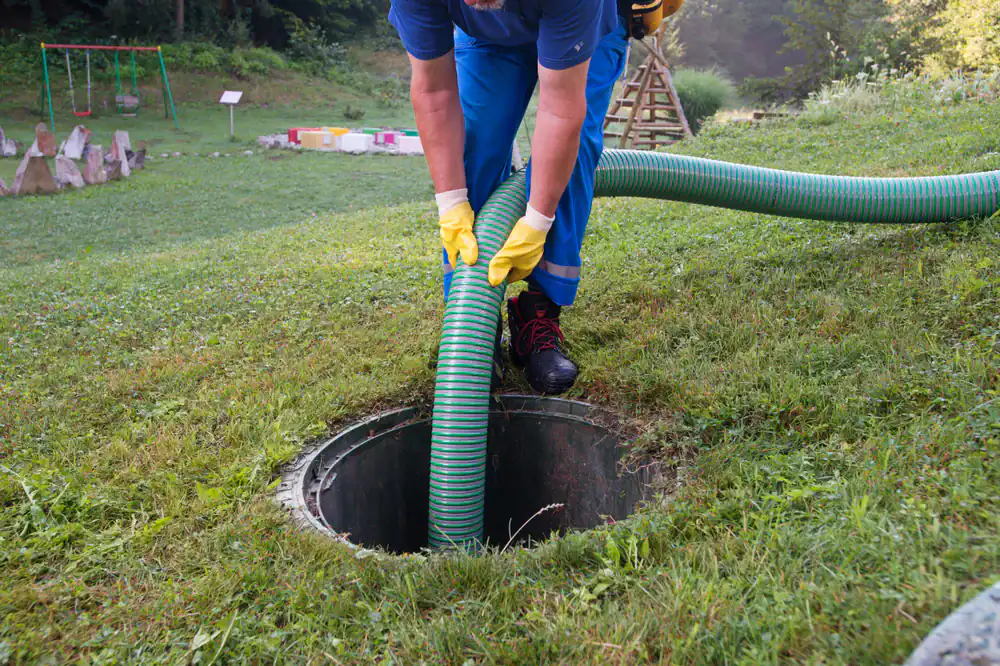
Our Reviews
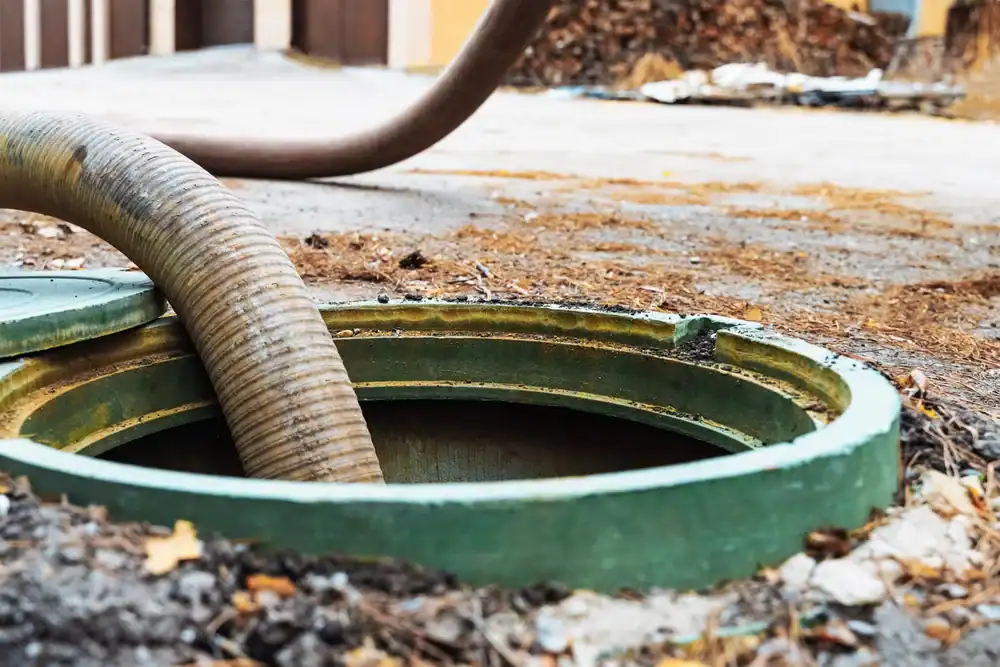
Your septic system works hard every day, processing everything your household sends its way. When it’s properly maintained, you don’t think about it. When it’s not, you’ll know immediately – and it won’t be pleasant.
Regular septic tank cleaning keeps your system running smoothly for years longer than neglected tanks. You’ll avoid those middle-of-the-night emergencies where sewage backs up into your home. Your property stays clean, your family stays healthy, and your wallet stays closed.
Most importantly, you get peace of mind. No more wondering if today’s the day your septic system fails. No more worrying about expensive repairs that could have been prevented with simple maintenance.
All Rooter Hydro Jetting Experts Inc. has been serving Stickney and the greater Chicago area with comprehensive plumbing and septic services. We’re locally owned, which means we understand the unique challenges that Chicago-area septic systems face – from clay soil conditions to freeze-thaw cycles that can stress your system.
We’re licensed, bonded, and insured because your property and your family’s safety matter. Our technicians know septic systems inside and out, and they’ll give you straight answers about what your system needs and what it doesn’t.
When you call us, you’re working with professionals who’ve seen every type of septic issue Chicago homeowners face. We know what works, what doesn’t, and how to get your system back to peak performance.
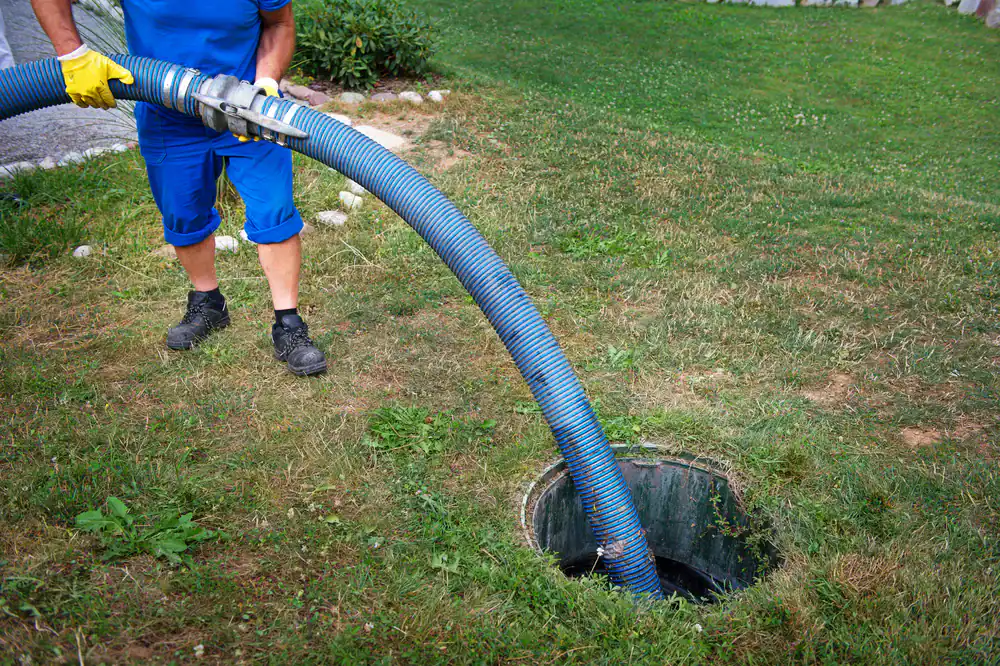
We start with a thorough inspection of your septic tank and system components. Our technician will locate your tank, check access ports, and assess the current sludge and scum levels to determine exactly what your system needs.
Next comes the pumping process. We use professional-grade vacuum equipment to remove all accumulated solids and liquids from your tank. This isn’t a quick-and-dirty job – we make sure your tank is completely emptied so you get maximum time before your next service.
After pumping, we inspect your tank for any signs of damage, check baffles and inlet/outlet pipes, and test your system’s overall function. You’ll get a clear report on your system’s condition and recommendations for any maintenance or repairs that might be needed. We’ll also let you know when to schedule your next cleaning based on your household size and usage patterns.
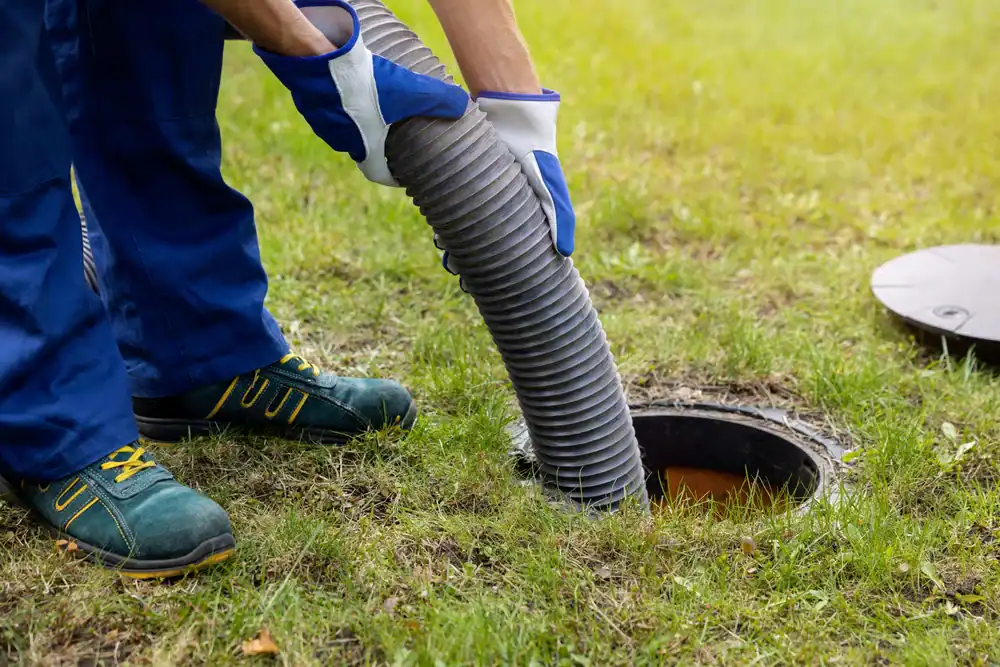
Ready to get started?
Our septic tank cleaning service includes complete tank pumping, system inspection, and detailed reporting on your system’s condition. We don’t just pump and leave – we make sure you understand what’s happening with your system and what you can expect going forward.
In Stickney and surrounding areas, most residential septic tanks need pumping every 3-5 years, depending on household size and water usage. Clay soil conditions common in this area can affect drainage, so we pay special attention to your drain field and distribution system during our service calls.
We also provide emergency septic pumping when your system backs up or overflows. Our 24/7 emergency service means you won’t be stuck with a septic emergency over a weekend or holiday. We’ll get your system working again quickly and help you understand what caused the problem so you can prevent it from happening again.
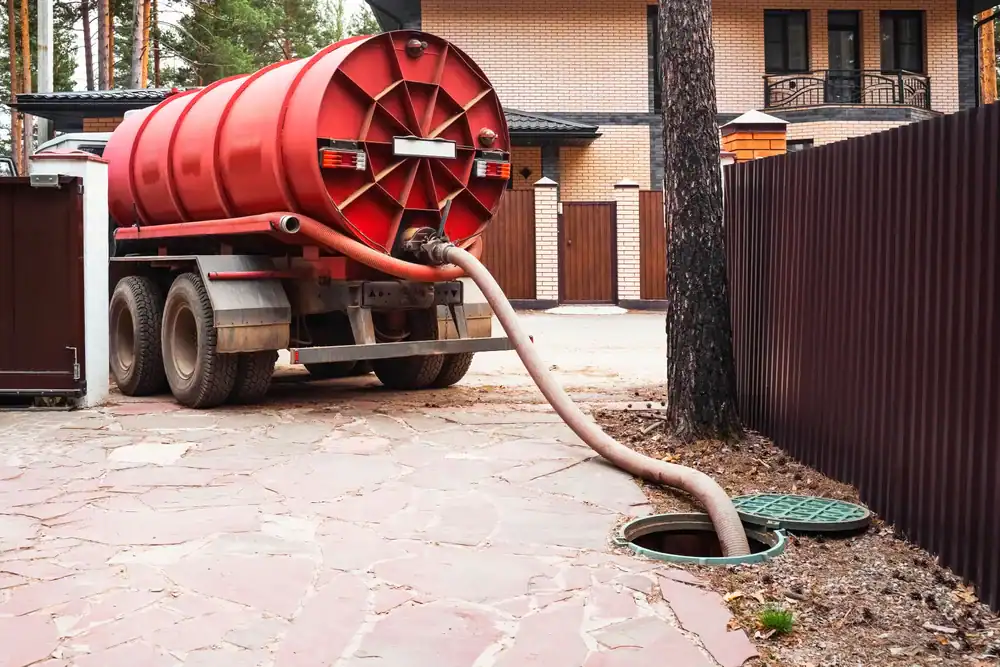
Most residential septic tanks in Stickney need professional cleaning every 3-5 years. The exact timing depends on your household size, water usage, and what goes down your drains. A family of four typically needs service every 3-4 years, while smaller households might go 4-5 years between cleanings.
You can’t really tell from the surface when your tank needs pumping – by the time you notice problems, your system is usually already backing up or failing. That’s why we recommend sticking to a regular maintenance schedule rather than waiting for warning signs.
If you’re not sure when your tank was last serviced, we can inspect it and let you know exactly where you stand. Most tanks show clear signs of when they were last pumped, and we can estimate how much time you have before your next service.
Skipping regular septic tank cleaning leads to expensive problems that get worse over time. When your tank fills with solids, wastewater can’t separate properly, and untreated sewage starts flowing into your drain field. This clogs the soil and eventually causes your entire system to fail.
The first sign is usually slow drains, toilets that don’t flush properly, or sewage odors around your property. If you ignore these warnings, you’ll eventually get sewage backing up into your home – a health hazard that requires immediate professional cleanup and can damage flooring, walls, and personal belongings.
A complete septic system replacement can cost $15,000-$25,000 or more, while regular pumping costs a few hundred dollars every few years. The math is pretty clear – maintenance is always cheaper than replacement, and a lot less disruptive to your daily life.
You usually can’t tell your septic tank is full until it’s too late and problems start showing up in your house. Early warning signs include slow-draining sinks and tubs, toilets that don’t flush completely, or gurgling sounds when water drains.
Outside your house, you might notice sewage odors near your septic tank or drain field, wet spots or standing water over your drain field, or unusually green grass in the area. These are all signs that your system isn’t processing wastewater properly and needs immediate attention.
The only reliable way to know your tank’s condition is professional inspection. We can measure sludge and scum levels and tell you exactly how much capacity you have left. Don’t wait for problems to develop – by then, you’re looking at emergency service calls and potential system damage that could have been prevented.
Septic tank pumping isn’t a DIY job, and attempting it yourself can be dangerous and illegal. Septic tanks contain toxic gases like hydrogen sulfide and methane that can cause serious illness or death. Professional pumping equipment and safety protocols are required to do the job safely.
You also need proper disposal methods for septic waste – you can’t just dump it anywhere. Licensed septic professionals have permits and relationships with approved disposal facilities that meet environmental regulations. Improper disposal can result in hefty fines and environmental cleanup costs.
Beyond safety and legal issues, professional pumping includes system inspection and maintenance that untrained homeowners can’t perform. We check for tank damage, test system components, and identify potential problems before they become expensive repairs. The small amount you might save doing it yourself isn’t worth the risks and missed maintenance opportunities.
Your septic system depends on bacteria to break down waste, so anything that kills bacteria or doesn’t decompose will cause problems. Never put bleach, antibacterial soaps, or harsh chemicals down your drains – they kill the beneficial bacteria your system needs to function.
Avoid flushing anything besides toilet paper and human waste. That means no feminine hygiene products, diapers, cat litter, cigarette butts, or “flushable” wipes (which aren’t actually septic-safe). These items don’t break down and will clog your system or require more frequent pumping.
In your kitchen, keep grease, oil, and food scraps out of your drains. Grease solidifies and clogs pipes, while food waste adds unnecessary solids to your tank. Use your garbage disposal sparingly if you have one – it significantly increases the amount of solids entering your septic system and means you’ll need more frequent pumping.
Septic tank pumping in Stickney typically costs $300-$600 for a standard residential tank, depending on tank size, accessibility, and current condition. Tanks that haven’t been pumped in many years or are difficult to access may cost more due to extra time and equipment needed.
We provide upfront pricing before we start any work, so you’ll know exactly what you’re paying with no surprise charges. Emergency service calls may include additional fees, but we’ll explain all costs before beginning any work on your system.
The cost of regular maintenance is minimal compared to septic system repairs or replacement. A new septic system can cost $15,000-$25,000 or more, while keeping your current system properly maintained costs just a few hundred dollars every few years. Regular pumping is one of the best investments you can make in your property.